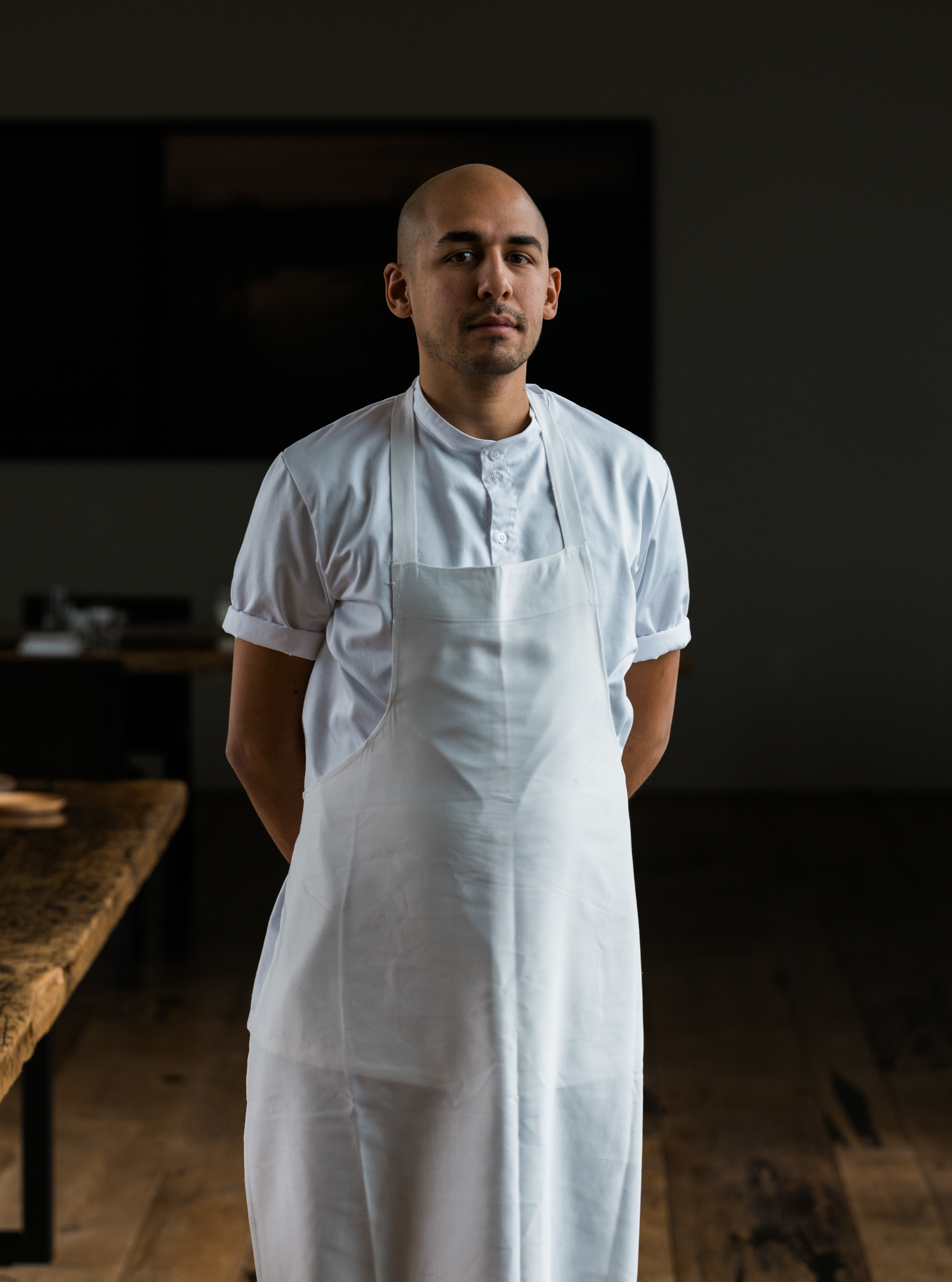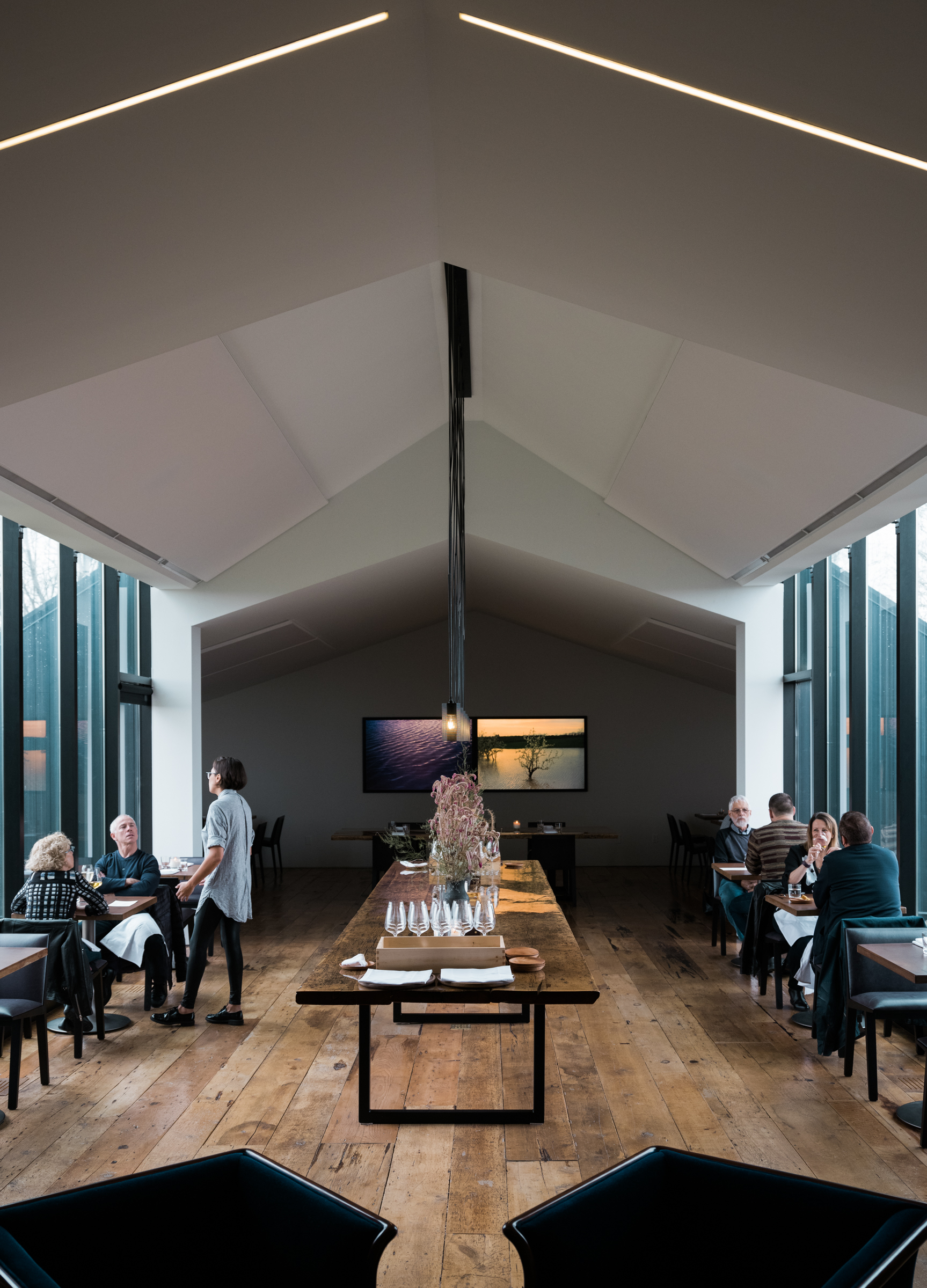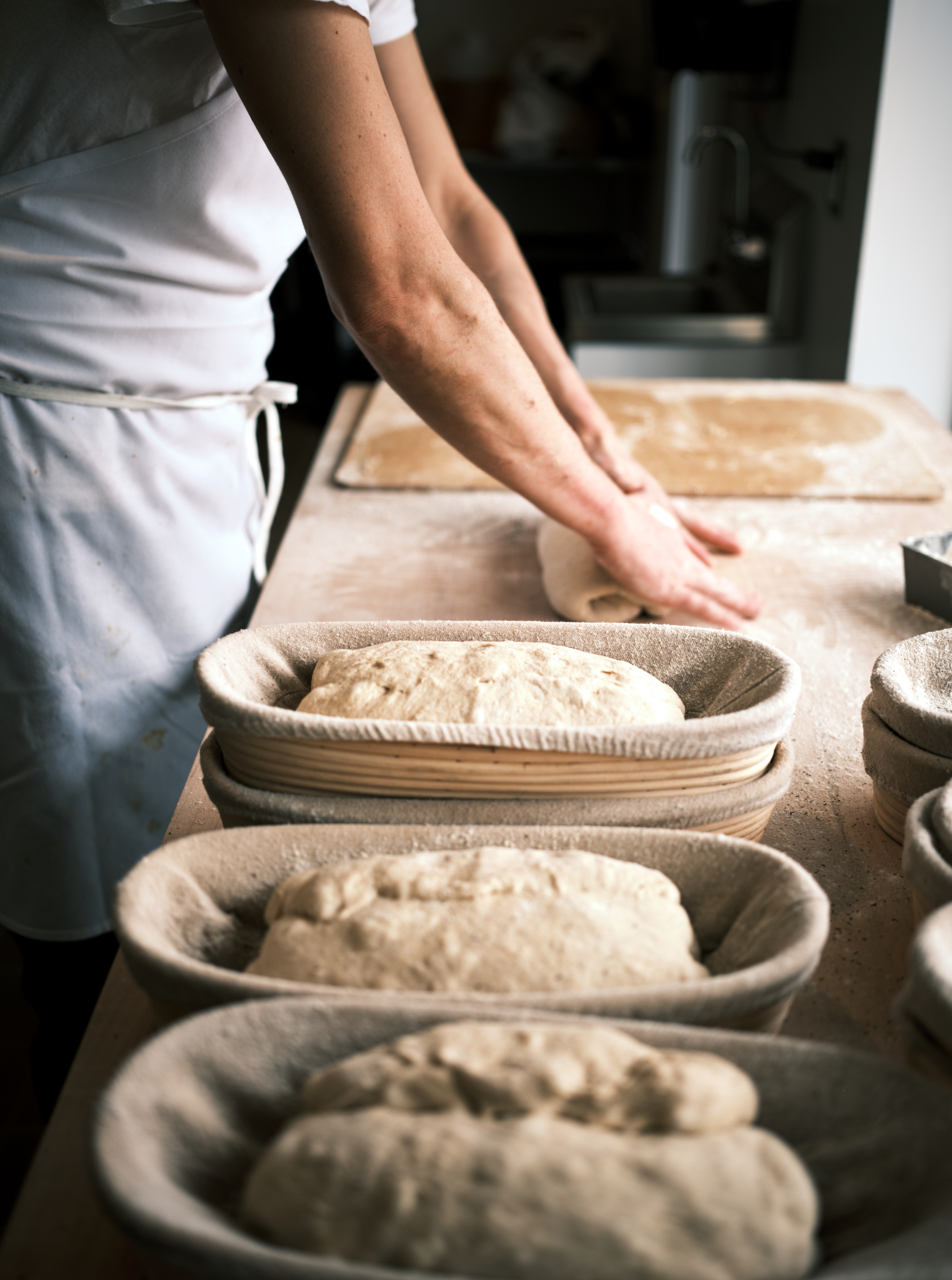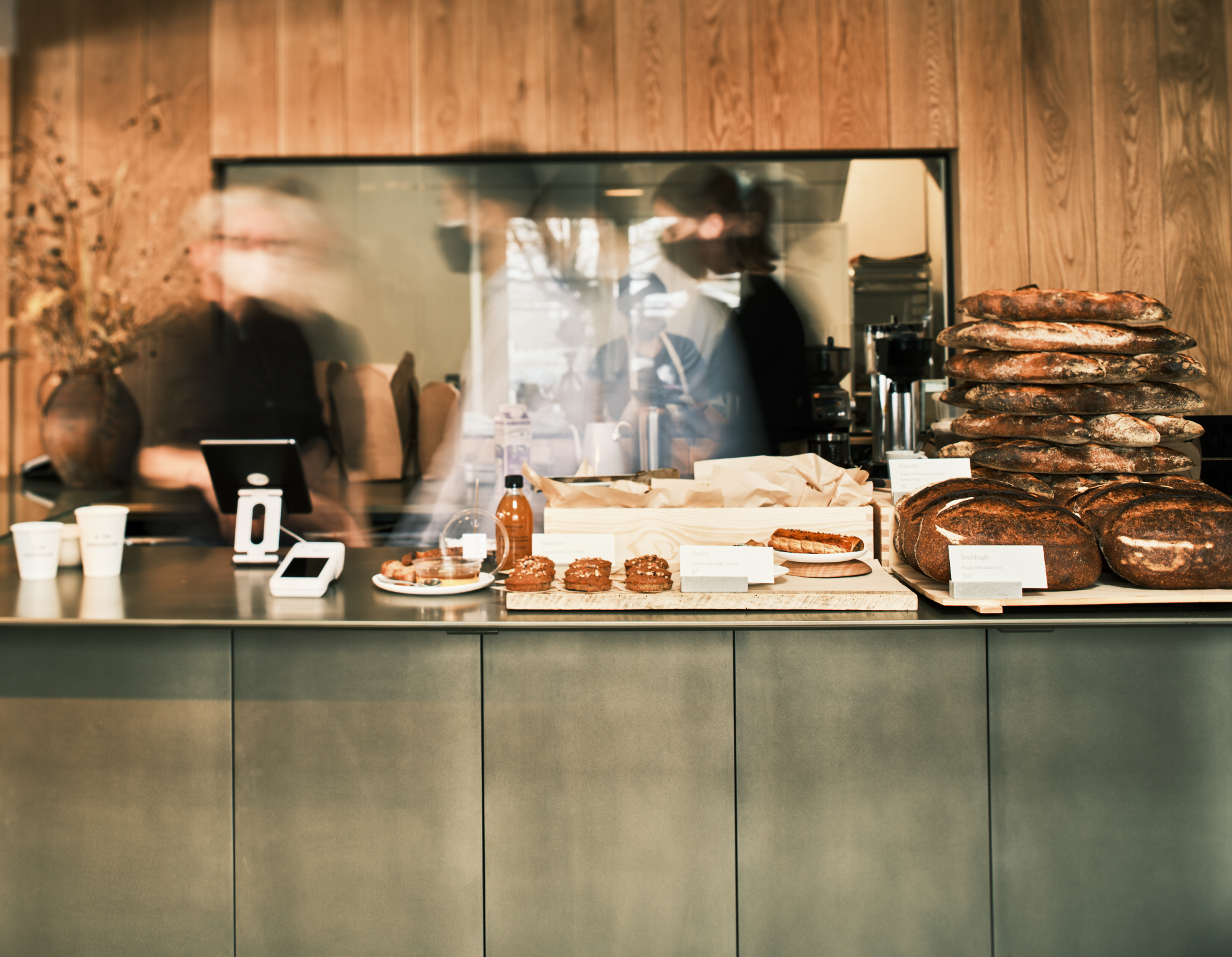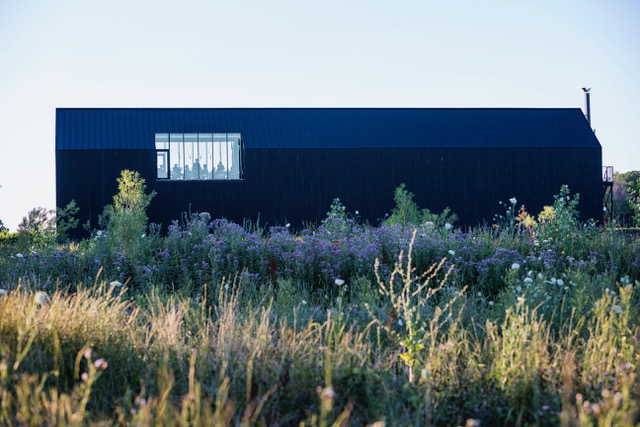
The doors at Restaurant Pearl Morissette (RPM) had been open only six weeks when the Jordan Station dining room hosted a Michelin on the Road dinner.
The prestigious event in late 2017, which brought in Michelin dining guide-starred chefs to work alongside RPM co-chefs Daniel Hadida and Eric Robertson, was remarkable for more than the intricate multi-course meal prepared for guests.
Those marketing the dinner told The Hamilton Spectator “it was a signal that the world’s most trusted dining authority is finally paying attention to Canada’s culinary scene.”
It was the kind of publicity Hadida, who, like Robertson, had trained in rigorous and Michelin-starred kitchens in Europe, wanted at the time.
The duo built a strong team to work alongside them, including Kristen Daigle, the restaurant’s manager who held the view that hospitality, particularly at the front of house serving guests, was a profession, not a stepping stone to something else.
Job postings at RPM reinforced this by offering robust benefits, including group registered retirement savings with employer contributions, health insurance, paid vacation, wine and produce allowances, and opportunities for professional development.
They were perks unheard of in the restaurant industry at the time – even today. Add to that RPM’s no tipping policy, ensuring equity in compensation for all staff, and you had a restaurant setting an indelible standard.
Ask Hadida, though, and he’ll tell you the benefits package at RPM were meant to attract like-minded and progressive team players to work in rural Niagara. But they were “not as much of a consideration” as executing superlative guest experiences like those that landed them in the Michelin spotlight so soon after opening.
Eventually, that took a toll on the RPM team. A healthy workplace culture, though important to all three, was largely an unspoken expectation without clear direction for achieving it. Hadida, Robertson and Daigle realized the more RPM grew as a business, the more critical it was to put people first and in a way that job perks on paper and pushback against traditional compensation models couldn’t do alone.
“It was sink or swim at the time,” Daigle said. “But that’s not conducive when you’re building a team. The more success we gained, the more employees we had, the more money we were making, the more we were like, ‘Workplace culture does really matter more than we thought it did.’ It’s not that it didn’t matter in the beginning, it’s importance revealed itself to us over time.”
When Hadida could finally come up for air after a whirlwind start to RPM, which included being named Canada’s Best New Restaurant by enRoute Magazine in 2018, he realized how deeply unhappy he felt.
The team needed different resources, including new personal perspectives, to establish a sustainable approach to work that would cement the restaurant as the innovative, transparent and team-oriented workplace everyone hoped it would be.
“I felt like the relationships I had with the people around me in the workplace weren’t particularly functional and that it wasn’t allowing either of us to do our best – the employees or myself,” he said. “Whereas I typically have a lot of energy and I can just keep on trucking through something, I was hitting a point where, for the first time in my life, I was no longer able to continue doing that. It indicated to me that I needed help in some form to sort out what it meant.”
The pressure to excel left Daigle at the front of house feeling like she was struggling to shore up the help she needed from her coworkers.
“When I was trying to pull people into that team, (I realized) that if I wasn’t setting them up for success correctly, that I was not gaining any ground. I was just treading water,” she said. “I think we realized that not supporting and giving people the tools to not just survive but thrive in our environment was getting us farther away from our goal rather than closer.”
Hadida began shifting his focus away from being a high-level performer to looking inward to become a stronger leader. He had to unlearn the “cog in the machine” mentality instilled by the kitchens that reared him and consider the long-term effects, rather than the short-term benefits, of constantly pushing himself and others to their maximum.
Hadida sought feedback when he saw good people leave RPM for positions elsewhere. He listened with an open mind – no matter how uncomfortable – to become a leader who could better delegate while nurturing employees’ personal growth in an equitable, diverse and collaborative team atmosphere.
“It was taking it more seriously, having to go against what I learned and was taught my whole time in the industry,” he recalled. “That takes some time, as well, to accept that’s the right way to go. It’s a day-by-day change. In this conversation, I will choose to respond differently. I’ll choose to be more aware. I will choose to ask more questions.
“For culture to be effective, it has to be actively practiced on a daily basis,” he added. “Having something in a job posting is really only a very small part of that to authentically create an environment that allows as much space for people to do their best work.”
With no real inspiration to draw on from her own work history, Daigle looked to experiences from outside the restaurant to shape her leadership style, including working a post-graduate degree, doing community projects and collaborating with community groups.
The pandemic also brought the importance of a healthy work life into sharper focus with the challenges of attracting people to an industry that was experiencing, if not leading, the Great Resignation of 2020. The RPM team knew they would have to step things up to encourage the right candidates to submit a resume.
They did it by changing the tone of conversations, speaking to each other “as human beings,” not deferentially to reinforce unhealthy power dynamics. It meant participating actively in employees’ success rather than leave it up to chance they would achieve it. Instead of one person doing everything, employees were entrusted and empowered to do their own work and do it independently – and reassured that mistakes were allowed. Hadida, Daigle and Robertson also encouraged individual team members to collaborate with each other, ask questions and take a genuine interest in how their coworkers are feeling.
They constantly re-evaluate everything they’re doing to ensure all is working as it should be. Even when it is, all three challenge themselves to keep doing better.
“It’s always a huge work in progress,” Hadida said. “Part of it is undoing some of the trauma of the industry and people’s general ideas about authority, what that means, what that looks like, and how that plays out.”
All that inner work is, well, working. At the time of that Michelin dinner, RPM had a staff of six. At the outset of the pandemic, it was 17. Earlier this year, the business grew to include a bakery and bistro, RPM Bakehouse, in the centre of Jordan. The employee head count now hovers around 70.
Ensuring the positive trajectory continues means a lot of self-care for RPM’s leaders. Hadida makes a point of eating well, having good sleep hygiene, going to therapy, avoiding alcohol and maintaining healthy relationships inside and outside the restaurant.
Daigle tries to spend as much time with people outside the industry to keep things in perspective on the job.
“It just helps me to remember that it feels very important to us when we’re in it, but there’s a whole world of stuff happening that does not care what we’re doing over here,” she said.
Join us as we continue to follow Restaurant Pearl Morissette’s story through Instagram and Facebook.
Special thanks to Tiffany Mayer for writing this piece. Tiffany is a Niagara writer who loves writing about the people making our region a better place.
